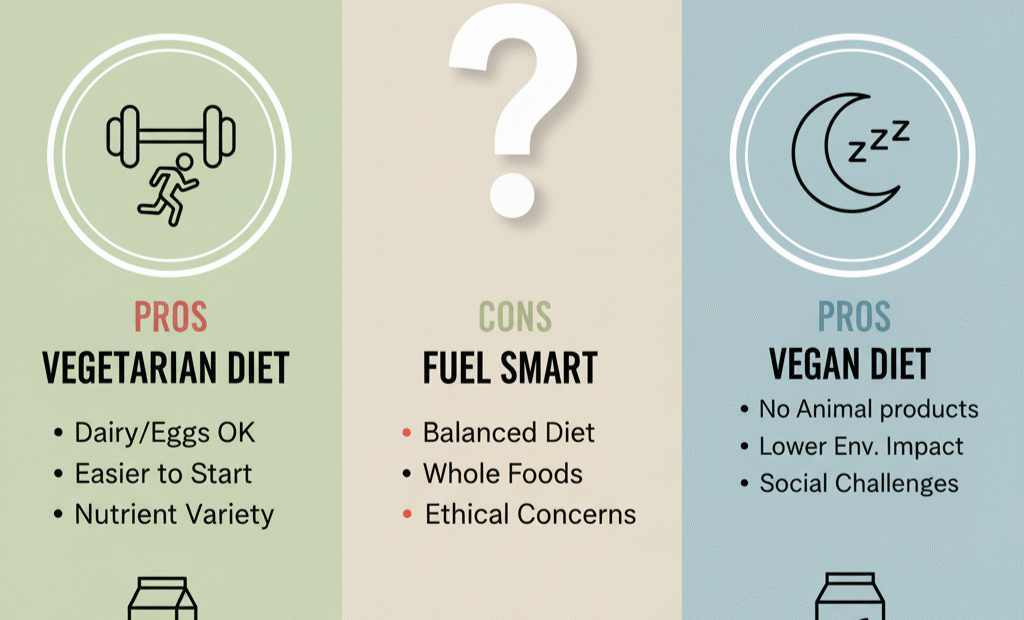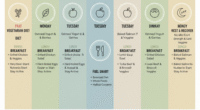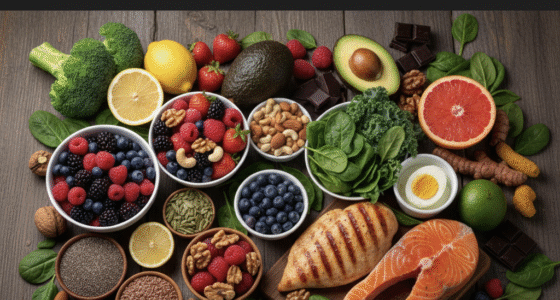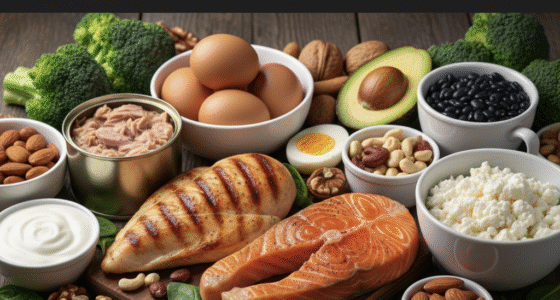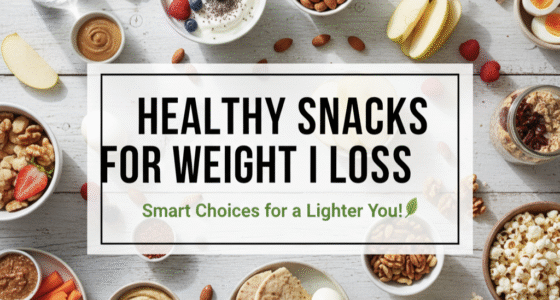Plant-based diets are becoming increasingly popular in 2025, driven by health trends, ethical concerns, and environmental awareness. Two of the most common approaches are the vegetarian diet and the vegan diet. While both emphasize plant-based foods, there are significant differences in nutrition, lifestyle, and sustainability. Understanding these differences will help you choose the diet that best aligns with your goals and lifestyle.
Understanding the Vegetarian Diet
A vegetarian diet eliminates meat, poultry, and seafood but allows dairy products and eggs, depending on the type of vegetarianism. Vegetarians rely on plant-based foods for most of their nutrition but still consume some animal-derived products.
Types of Vegetarian Diets
- Lacto-ovo vegetarian: Includes both dairy and eggs. This is the most common form.
- Lacto vegetarian: Includes dairy but excludes eggs.
- Ovo vegetarian: Includes eggs but excludes dairy.
- Pescatarian (optional): Excludes meat but includes fish; sometimes classified under vegetarianism.
Pros of a Vegetarian Diet
- Easier to follow than vegan since more food options are available.
- High protein intake from eggs and dairy reduces risk of nutrient deficiencies.
- Supports heart health, weight management, and blood sugar control.
- Flexibility in restaurants and travel settings.
- Encourages increased intake of fruits, vegetables, and whole grains.
Cons of a Vegetarian Diet
- Some processed vegetarian foods can be high in sugar, sodium, and fats.
- May still include animal-derived products, which some avoid for ethical reasons.
- Potential iron and B12 deficiencies if plant sources are not carefully planned.
- Portion control is important to avoid excess calories from cheese and dairy.
Understanding the Vegan Diet
A vegan diet excludes all animal products including meat, fish, eggs, dairy, and sometimes honey. Vegans focus entirely on plant-based foods, including fruits, vegetables, legumes, grains, nuts, and seeds.
Pros of a Vegan Diet
- Ethically aligned with animal welfare and sustainability.
- Rich in fiber, antioxidants, and phytonutrients for better digestion and overall health.
- Supports lower cholesterol, improved heart health, and weight management.
- Environmentally sustainable, reducing carbon footprint and resource consumption.
- Encourages whole-food plant-based meals, minimizing processed foods.
Cons of a Vegan Diet
- Requires careful planning to avoid deficiencies in B12, iron, calcium, and omega-3 fatty acids.
- More restrictive; eating out or traveling can be challenging.
- Protein intake may be lower if legumes, nuts, and seeds are not consumed adequately.
- May need fortified foods or supplements for long-term health.
Key Nutritional Differences
While both diets are plant-centered, vegans avoid all animal products, making it essential to pay extra attention to nutrients often abundant in animal foods.
| Nutrient | Vegetarian | Vegan |
|---|---|---|
| Protein | Eggs, dairy, legumes, nuts, grains | Legumes, nuts, seeds, soy products, grains |
| Vitamin B12 | Dairy, eggs | Fortified foods or supplements required |
| Iron | Legumes, spinach, dairy moderate absorption | Legumes, leafy greens, needs vitamin C for absorption |
| Calcium | Dairy, fortified plant milk | Fortified plant milk, tofu, leafy greens |
| Omega-3 | Eggs, dairy, flaxseed, walnuts | Flaxseed, chia seeds, walnuts, algae oil supplement recommended |
Which Diet Fits Your Lifestyle?
Choosing the right diet depends on your personal goals, ethical stance, and lifestyle convenience.
When to Choose Vegetarian
- You want to reduce meat consumption but still enjoy dairy and eggs.
- You want a flexible diet that is easier to follow in social settings.
- You aim to balance plant-based meals with some high-quality animal protein.
When to Choose Vegan
- Your priority is animal welfare and environmental sustainability.
- You are committed to a fully plant-based lifestyle.
- You are willing to plan meals carefully to meet all nutritional needs.
Flexibility and Hybrid Approaches
Many people adopt a flexible approach: vegetarian most days and fully vegan occasionally. This method allows experimentation, reduces dietary monotony, and makes the transition easier for beginners.
Tips for Success on Either Diet
- Include a variety of whole foods to cover all essential nutrients.
- Use fortified foods or supplements for B12, vitamin D, and omega-3 when necessary.
- Track meals initially to ensure protein, iron, and calcium intake.
- Experiment with plant-based proteins like tofu, tempeh, lentils, chickpeas, and quinoa.
- Stay hydrated and pair iron-rich foods with vitamin C for better absorption.
Conclusion
Both vegetarian and vegan diets can support a healthy, sustainable lifestyle when planned correctly. Vegetarians enjoy flexibility and ease, while vegans maximize ethical and environmental benefits. Your choice depends on your personal priorities, health goals, and willingness to plan meals carefully. Whether you choose vegetarian, vegan, or a hybrid approach, consistency, nutrient balance, and mindful eating will ensure long-term success. Start slowly, make gradual adjustments, and embrace a plant-based diet that fits your lifestyle.
